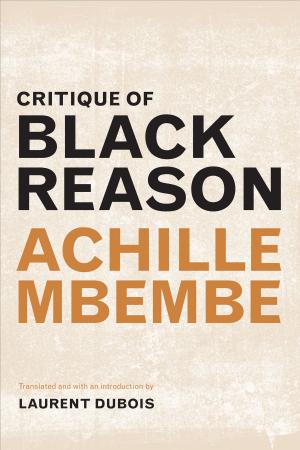The Beneficiary
Nonfiction, Religion & Spirituality, Philosophy, Ethics & Moral Philosophy, Fiction & Literature, Literary Theory & Criticism, Social & Cultural Studies, Political Science| Author: | Bruce Robbins | ISBN: | 9780822372172 |
| Publisher: | Duke University Press | Publication: | November 16, 2017 |
| Imprint: | Duke University Press Books | Language: | English |
| Author: | Bruce Robbins |
| ISBN: | 9780822372172 |
| Publisher: | Duke University Press |
| Publication: | November 16, 2017 |
| Imprint: | Duke University Press Books |
| Language: | English |
From iPhones and clothing to jewelry and food, the products those of us in the developed world consume and enjoy exist only through the labor and suffering of countless others. In his new book Bruce Robbins examines the implications of this dynamic for humanitarianism and social justice. He locates the figure of the "beneficiary" in the history of humanitarian thought, which asks the prosperous to help the poor without requiring them to recognize their causal role in the creation of the abhorrent conditions they seek to remedy. Tracing how the beneficiary has manifested itself in the work of George Orwell, Virginia Woolf, Jamaica Kincaid, Naomi Klein, and others, Robbins uncovers a hidden tradition of economic cosmopolitanism. There are no easy answers to the question of how to confront systematic inequality on a global scale. But the first step, Robbins suggests, is to acknowledge that we are, in fact, beneficiaries.
From iPhones and clothing to jewelry and food, the products those of us in the developed world consume and enjoy exist only through the labor and suffering of countless others. In his new book Bruce Robbins examines the implications of this dynamic for humanitarianism and social justice. He locates the figure of the "beneficiary" in the history of humanitarian thought, which asks the prosperous to help the poor without requiring them to recognize their causal role in the creation of the abhorrent conditions they seek to remedy. Tracing how the beneficiary has manifested itself in the work of George Orwell, Virginia Woolf, Jamaica Kincaid, Naomi Klein, and others, Robbins uncovers a hidden tradition of economic cosmopolitanism. There are no easy answers to the question of how to confront systematic inequality on a global scale. But the first step, Robbins suggests, is to acknowledge that we are, in fact, beneficiaries.















